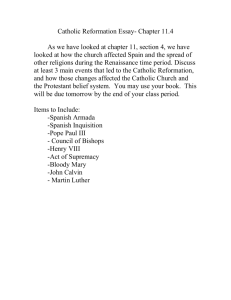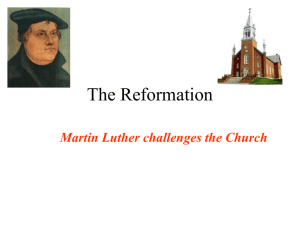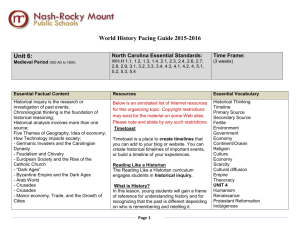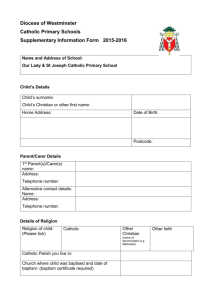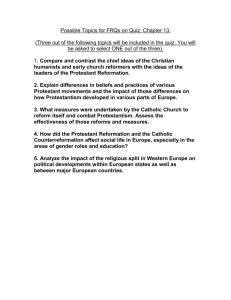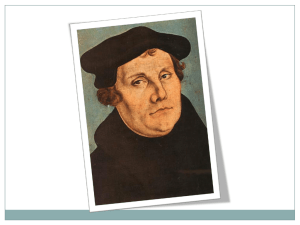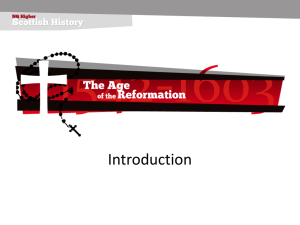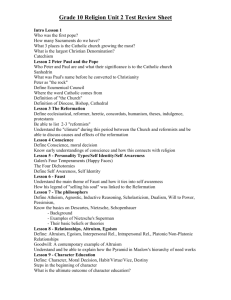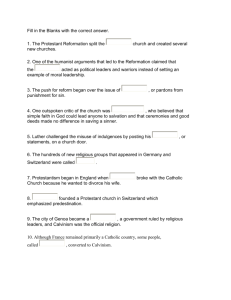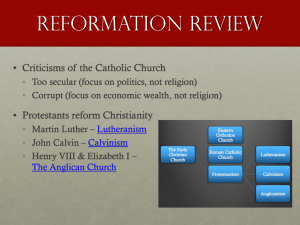Chapter 19 Section 3 The Reformation of Christianity
advertisement
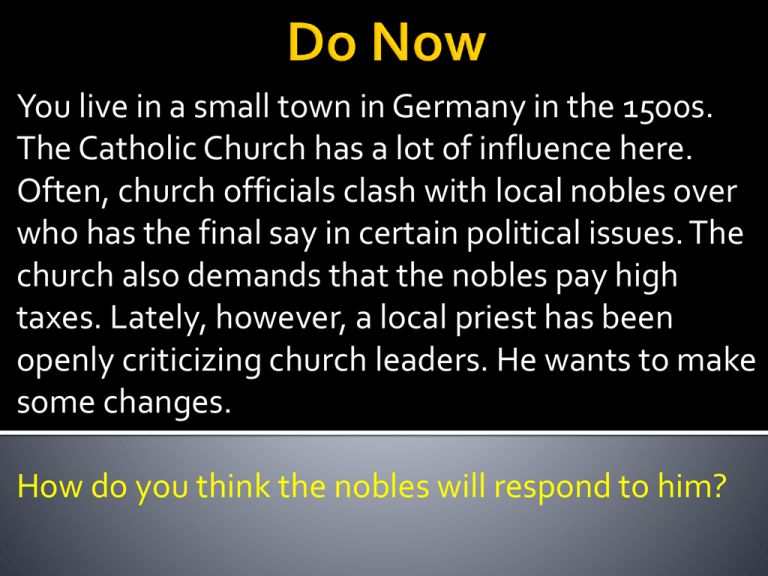
You live in a small town in Germany in the 1500s. The Catholic Church has a lot of influence here. Often, church officials clash with local nobles over who has the final say in certain political issues. The church also demands that the nobles pay high taxes. Lately, however, a local priest has been openly criticizing church leaders. He wants to make some changes. How do you think the nobles will respond to him? Big Idea: Efforts to reform the Roman Catholic Church led to changes in society & the creation of new churches. By the late Renaissance, Church leaders were corrupt Leaders called to lead a Reformation Complaints priest & bishops no longer religious Pope too involved in politics Church too rich (& didn’t have to pay taxes) Sale of indulgences (buy way to heaven) Priest, on Oct 31st, 1517 called for reform Nailed a list of complaints onto Church door Wittenberg, Germany state of Saxony Called 95 Theses Excommunicated for his actions Ideas led to a split in the Catholic Church ▪ Protestants ▪ Taught anyone could have direct relationship with God William Tyndale- translated Bible to English In response, Church executed him John Calvin-taught live good life & obey laws Preached “still go to heaven if you pursued profits”. ▪ Help lead to the growth of capitalism Please answer the following questions in your notebook (remember restate): 1.) What was the Catholic Reformation? 2.) What was the new order of Jesus? Why were they created? 3.) What was the importance of the Council of Trent? 4.) How did the Reformation lead to the growth of Federalism? Page 575 #1-3 & pg. 569 vocabulary
